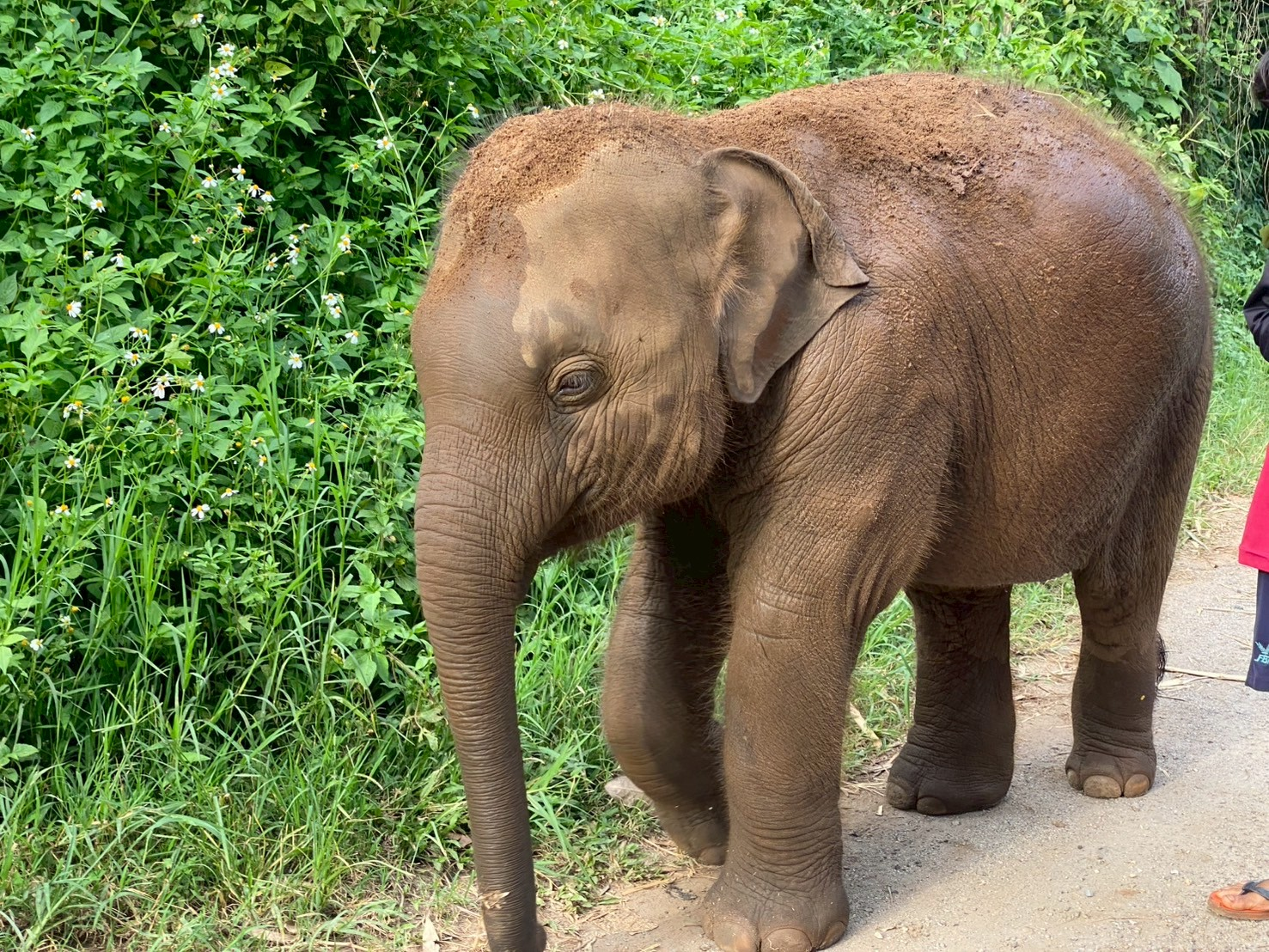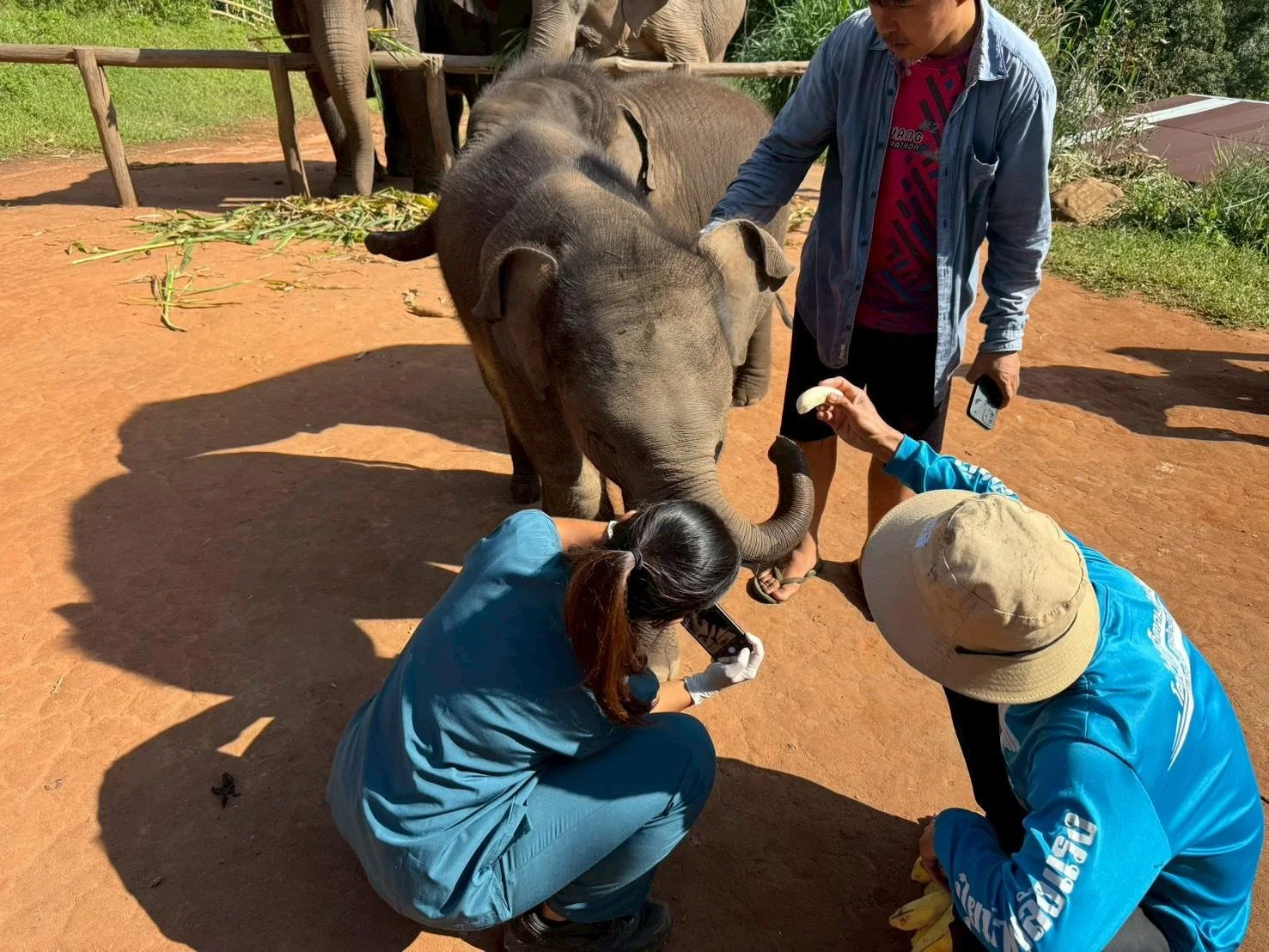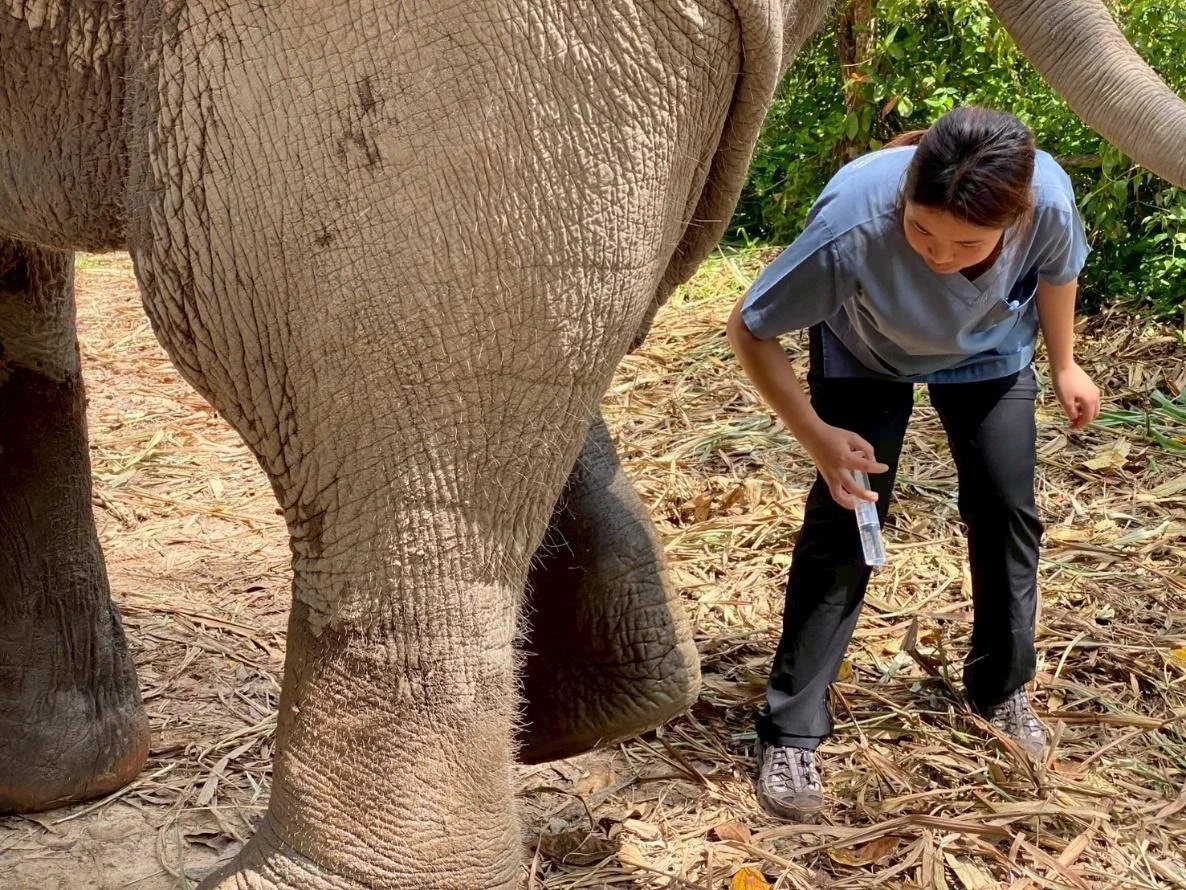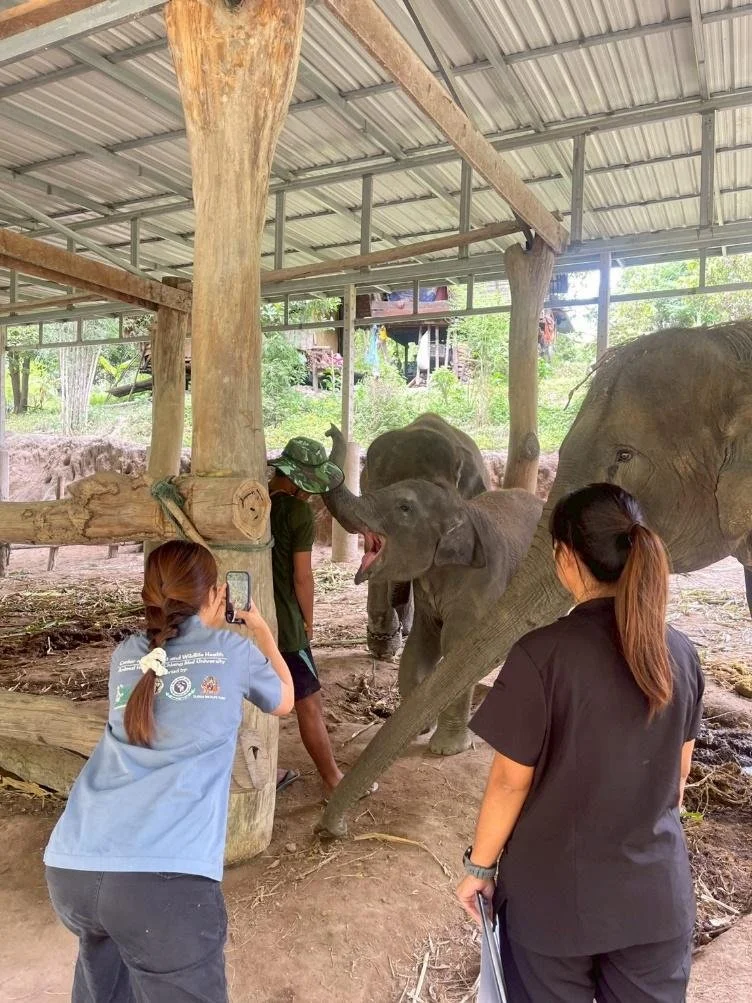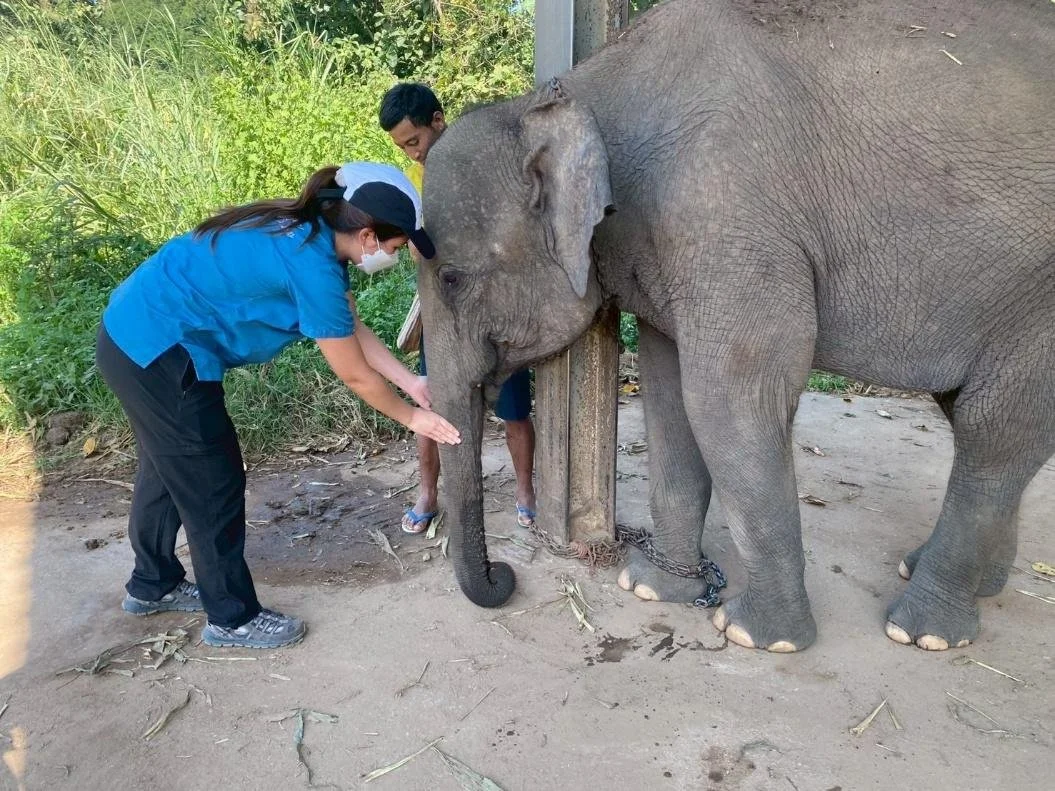October brought the Chiang Mai University Mobile Vet Clinic calls of help for elephants of all ages but mostly little ones. There was some unfortunate loss, but also success.
On October 13, a camp owner contacted the veterinarian team regarding a nearly 2-year-old calf that showed loss of appetite and facial swelling. The calf had refused bananas since the morning and appeared depressed, raising serious concern for possible EEHV infection. The team immediately traveled to the camp for examination.
Upon arrival, the calf was found to be severely depressed and slow to respond, with mild facial edema and a high fever. The feces were foul-smelling, and the calf frequently opened his mouth but refused all food, even when offered antiviral medication and vitamin C. A non-steroidal anti-inflammatory drug (NSAID) was administered intramuscularly while awaiting transport to the hospital.
Unfortunately, despite intensive efforts, the calf’s condition deteriorated rapidly, and he passed away that night. Laboratory testing later confirmed EEHV type 4 infection.
Because the calf had been housed with two other young elephants in the same camp, the veterinarian revisited the site to collect blood samples for monitoring and instructed the camp staff on thorough disinfection procedures. Mahouts were also advised to closely observe their calves for any early signs of illness. Vitamin C was provided as well
Calf showing low behavioral demeanor and a slightly swollen head
On October 19, 2023, an 8-month-old male elephant presented with lethargy, reduced playfulness, and decreased appetite for bananas, though it was still consuming milk. The owner also reported salivation. On October 20, 2023, a veterinarian examined the elephant and found it spraying its trunk and having saliva after eating bananas and watermelon. The elephant was not lethargic, and no lesions or bleeding were observed in the oral cavity. The elephant’s teeth were noted to be quite sharp, and the owner mentioned the elephant sometimes imitates its mother’s eating habits, which may have caused discomfort. The veterinarian administered vitamin supplements to support immunity and collected blood samples to test for viral
Vet and mahout examine calf’s mouth for injury and discover sharp teeth
While returning from another case, the veterinarian received a call from an elephant owner reporting that their elephant had swollen and painful legs, requesting an examination. Upon arrival, the veterinarian found a 30-year-old female elephant with swelling in both hindlimbs. The elephant was still able to bear weight but frequently rested its legs. A close physical examination revealed small lacerations on both hindlimbs caused by sharp objects, with no deep penetration but with a small amount of pus present. The wounds were cleaned, and pain-relief medication was administered. The owner was advised on proper wound care, including daily cleaning of the affected areas and reducing the elephant’s walking activity to support healing.
Vet cleaning wound on hindlimbs
On October 24, another owner reported that a 2-year-old female elephant calf had eaten soil and subsequently developed diarrhea and lethargy. Upon examination, the calf was found to be slightly lethargic but defecating normally. The feces were green in color, contained no soil, and were moist. No facial swelling or petechiae were observed, and the calf was eating normally. Vitamin supplements were administered to boost immunity, and a blood sample was collected for viral testing. The owner was advised to closely monitor the calf’s condition. And finally the blood test results showed no evidence of viral infection.
Vet closely observe calf looking for possible EEHV symptoms
A 5-year-old female elephant presented with suspected foreign body obstruction in the trunk. The mahout reported that since the evening of October 28, the elephant had difficulty lifting her trunk but was still able to pick up food and drink by drawing water through it. On the morning of October 29, a small piece of corn residue was expelled. The elephant remained able to sleep normally. On physical examination, she continuously blew air from her trunk and could only flex the distal one-third of it. Palpation revealed a firm foreign object located approximately 50 cm deep inside the right nasal passage of the trunk. Anti-inflammatory medication was administered, and attempts were made to shake and manipulate the trunk, but the object remained in place. Referral to a specialized veterinary hospital was recommended for further diagnostic evaluation and management.
Vet palpates trunk for blockage
The professionals of the Chiang Mai University Mobile Vet Clinic continue to provide top notch care for elephants in all states of health. We are so grateful for their efforts to provide care for Thai elephants of all ages! Donate today to support the care of Thai elephants.

